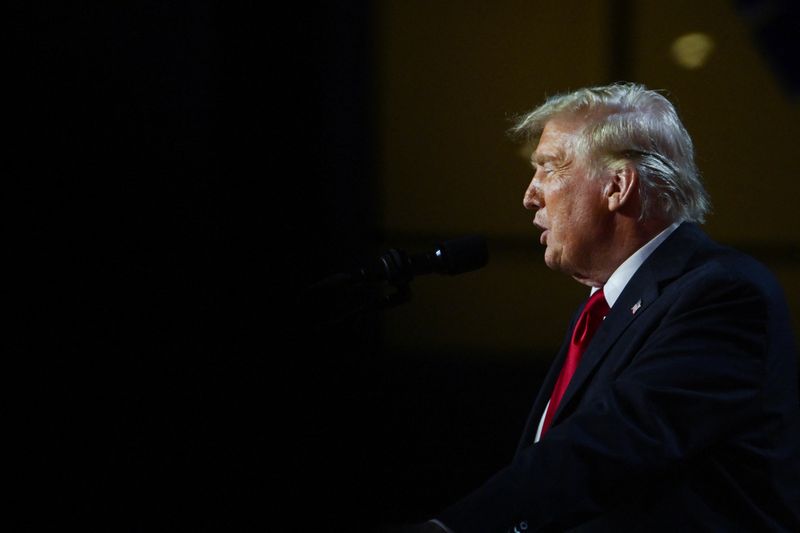What Trump 2.0 might mean for aerospace and defense stocks, according to Citi
Investing.com - Defense spending will likely remain resilient as the White House transitions to a second Trump administration, according to analysts at Citi.
But in a note to clients, the analysts led by Jason Gursky argued that the trajectory of defense expenditures tends to align with "the threat environment," suggesting that Trump seems more likely to focus on China than current Russian military activities in Europe.
Given the nature of a potential conflict in the more watery Indo Pacific region, they expect the spending will increase over time on "assets that fly and float" rather than those that "crawl on the ground."
Trump's White House is also likely to intensify its focus on applying artificial intelligence and machine learning in a military setting, including using the technologies to synthesize large amounts of geospatial data produced by aerial or space-based assets, the analysts said. Some of the companies potentially exposed to this policy are geospatial analytics group HawkEye 360, big data firm Palantir Technologies (NYSE:PLTR ), and aerospace giant Boeing (NYSE:BA ), the analysts said.
In recent days, Trump has moved to establish his foreign policy and defense team. Among the names put forward by the President-elect have been Fox News host Pete Hegseth as his Secretary of Defense, Congressman Mike Waltz as his National Security Adviser, and Arkansas Governor Mike Huckabee as ambassador to Israel.
Trump's transition team has also targeted a list of military officers at the Pentagon to be fired, with these officials potentially including the Joint Chiefs of Staff, Reuters has reported. The firings could change as Trump's administration takes shape, the news service added.
As he prepares to move back into the White House for a second four-year term, Trump faces a host of issues around the world, including hostilities in the Middle East and the ongoing war in Ukraine. Tensions are also high between China and Taiwan.
The developments have motivated US policymakers to be ready to both deter and, if necessary, fight conflicts on three fronts, the Citi analysts said.
"Importantly, this approach represents a departure from recent strategies focused more on the ability to be fully engaged in one region of the world while putting out spot fires in others," the analysts flagged.
The evolution in this strategy has led to steady growth in US defense spending across the last three White House administrations, they said, noting that both Congress and Trump have also demonstrated a "propensity" to stretch these expenditures beyond self-imposed caps.
Source: Investing.com
